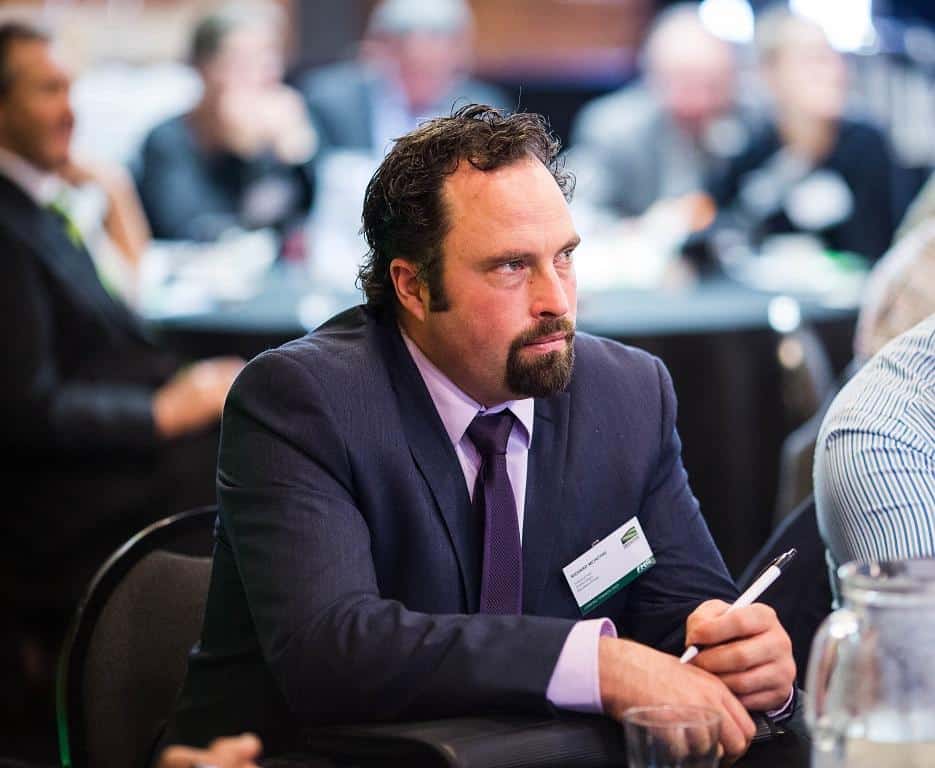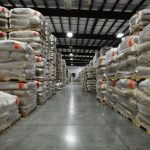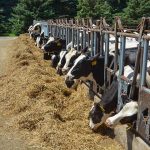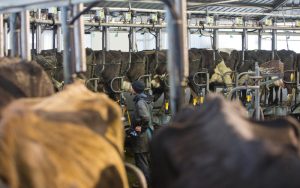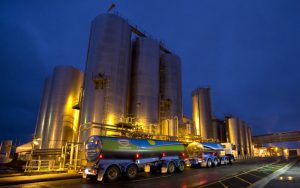
Fonterra’s seven-year plan to purge $1billion of costs from its business has dairy farmers questioning if some of this could have been removed before.
They applaud the co-op for striving to be more streamlined during a tough payout and high cost environment, albeit with mixed emotions about looming job cuts.
Fonterra chief executive Miles Hurrell wrote to shareholders telling them the focus on being more efficient would have “implications” for staff numbers, but not at the expense of driving value growth.
He said many farmers were under pressure after two forecast cuts last month to the 2023/24 payout.
A reduced midpoint of $6.75 a kilogram of milksolids will, if it plays out, be the lowest payment since $6.35/kg for the 2018/19 season.
The only cause for cheer was a small rise in the Global Dairy Trade auction last week.
Federated Farmers Dairy chairman Richard McIntyre said farmers would be delighted to see Fonterra was analysing its business and looking for ways to remove costs.
However, the idea a surplus $1b was being spent historically was concerning as shareholders expected the co-op to carry out cost reviews all the time to make the “boat go faster”, he said.
“In many ways it’s the same as what farmers are doing at the moment. They are having a really hard look at farming businesses to see if there’s anything they can do to streamline things and remove some costs as well, particularly at a time when profitability is quite difficult with a low milk price relative to costs. That said, it is troubling to see that Fonterra thinks $1b can be saved because that would suggest that analysis should have happened a long time ago.”
Mr McIntyre said farmers recognised that talk of potential job cuts or restructuring was an unsettling time for staff.
The hope was that staff might be deployed to areas providing more value, he said.
Farmers are also going through their budgets to reduce farm costs and whether that extends to their own staff losing jobs remains to be seen.
Mr McIntyre said farmers had found it difficult to fill rosters until lately with the labour shortage freeing up as a result of the accredited employer work visa scheme.
The challenge was it had been expensive to employ these staff, he said.
“What we have seen over the last month is for employers to step in and do more hours themselves and actually cut back on labour a little bit. Not necessarily because they want to and, to be perfectly honest in some cases, not because it’s healthy for them doing 70 to 80 hours a week, but because they feel they need to to balance the books.”
Fonterra has not disclosed whether a job review may include senior management or a sinking lid policy on hiring new staff.
The co-op’s payroll included about 7800 staff on $100,000 to $250,000 in the year ending June. About 500 staff were on $250,000 to $500,000, 80 staff on $500,000 to $1million and 14 staff on $1m to $4.3m, including bonuses and other benefits.
Mr McIntyre said farmer views on co-op wages differed.
“I certainly hear from farmers that they are paid far too much and my argument is always that you actually have to pay the people if you want a good job done. If Fonterra’s wage packet was half what it was we would be getting far less a result potentially. The big thing is we need these highly paid people performing well and to be finding efficiencies within the organisation to make it more profitable.”
He said farmers needed to take a calculated approach to cost cutting and slow down after the busy calving period to make good decisions.
Analysis after the 2007-08 Global Financial Crisis (GFC) showed how farmers reacted and recovered afterwards.
Those that cut spending hard took a long time to recover when the milk price improved, he said.
“Whereas the ones that took a very considered approach and analysed their systems … the GFC was just a blip over a year or so and then they climbed back into profitability and paid back any money they had to borrow.”
He said farmers wanted Fonterra to take the same considered approach so they were analysing and investing in areas providing a return in the years to come.
Wasteful and inefficient spending in any form by the co-op would irk farmers who were doing more tractor and spending less money on the family to save costs, he said.
In his letter posted on the NZX sharemarket, Mr Hurrell said the two milk price revisions had made the year more challenging, but the co-op had delivered good earnings this financial year and had a strong balance sheet.
He said reducing $1b in costs was needed to achieve long-term targets through to 2030.
“This goal will help offset higher inflation expectations and we intend to achieve it through a range of projects that will streamline how we operate. These projects include operational efficiencies, reducing cash costs across the business, and digitisation of business processes.”
Cost reduction and business simplification activities had already begun, he said.
New efficiency measures were being introduced by the co-op to track how well it was performing.
Mr Hurrell went into more detail on the co-op’s expectations for demand returning from China hopefully next year after its whole milk powder stocks were absorbed.
– By Tim Cronshaw
